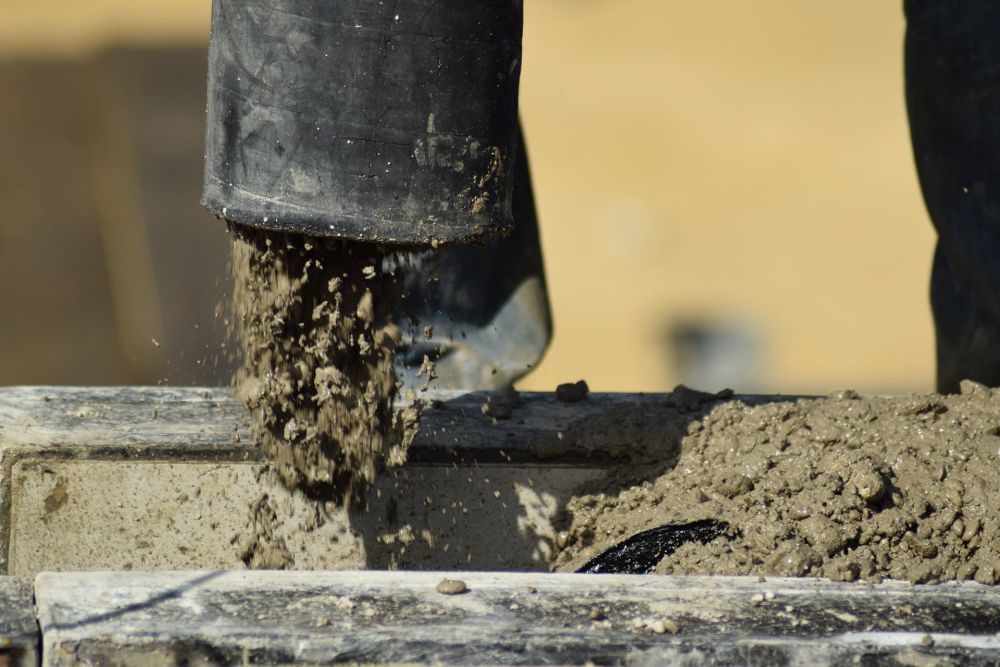
A Guide to Concrete for Fence Posts
If you’re planning to have your fence posts installed in concrete, you might be wondering what size the concrete bases should be. Or maybe you’re not sure what strength the concrete should be.
We’ve collected some information about concrete for fence posts in this article, so you can make informed decisions about what might be best for your fence.
What Strength of Concrete Do Fence Posts Need?
The strength of concrete you need for fence posts depends a lot on the type of fence, the weight of the fence structure and several other factors. In some parts of the world, the standard for ordinary fencing is 15Mpa, while in others, fence post base concrete starts at 20Mpa.
However, it’s not unheard of to have fence post concrete bases that are 30Mpa or even higher.
It’s important to note that the strength of concrete is usually measured seven days after it is cast, and the concrete will keep hardening after that. So even if your fence post concrete bases are 20Mpa at seven days, they’re likely to be much stronger after a few more weeks or months.
How Big Should Fence Post Concrete Bases Be?
The general rule of thumb for the diameter of fence post concrete bases is three times the size of the post that will be installed in the concrete. So, if your fence post is 100mm or 4 inches, your concrete base would be at least 300mm or about 12 inches.
While that is usually the minimum diameter for your concrete bases, there’s no rule that says you can’t specify a larger diameter concrete fence post base if the soil conditions, fence type and other factors dictate it.
How Deep Should Fence Post Concrete Be?
The depth of fence post concrete depends a lot on where your fence is being installed.
If you are installing a fence in a sunny country that does not have ice and snow in the winter, you could go as shallow as 600mm or about 2 feet.
If you are installing a fence in a colder country where there is ice and snow in the winter, you will probably need to go deeper than the frost line, which could be as much as 4 feet or about 1.2 meters.
Again, these are the minimums that are usually considered acceptable for fence post concrete base depth. Often, specifications change based on soil type, water table and other factors.
Why Would You Use a Larger Concrete Fence Post Base?
Fence post concrete bases keep fence posts upright, but they also work as a sort of anchor, offsetting the weight of the fence and the forces it naturally exerts.
If you are installing a much heavier, higher security fence or a heavy gate, it makes sense that you would want to have larger concrete footings so that they are better able to counterbalance the forces the fence puts on the concrete footing.
Concrete weighs about 2.4 metric tons per cubic meter, so that’s often factored into calculations to determine the size of a concrete fence post base for a fence post or gate post.
Are Concrete Fence Posts Bases Reinforced?
No, the concrete used for fence posts is typically not reinforced unless it is specified that way by an architect or engineer.
They also are not typically installed in cardboard forms or any kind of pipe – however, both of those can be done if the specification demands it.
What Kind of Stone Is Used In Fence Post Concrete?
Because fence post concrete bases tend to be relatively small, the concrete used to pour them usually has small stone, often either 13mm or about ½ of an inch, or 19mm or about ¾ of an inch. The smaller stone in this concrete is better able to “flow” around the post, and you will have fewer voids in your concrete.
Is Fence Post Concrete Always Ready Mixed?
No. Usually, when you are installing a long fence, contractors will use ready mixed concrete so that they can pour many bases in a day. However, smaller jobs often use hand-mixed concrete that is usually mixed on-site.
Do Fence Contractors Always Do Concrete Testing?
No. It’s not standard to do concrete testing for fence post bases, so if you want cube or slump tests for your fence post bases, you should request them at quote stage. Remember that there is also a cost for this kind of testing, so your contractor will have to include that in their price to you.


